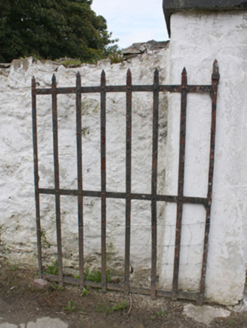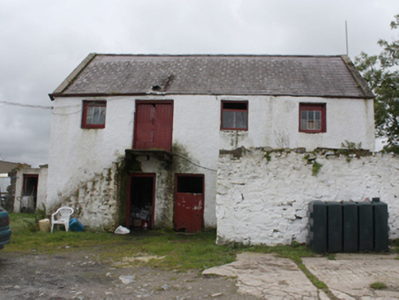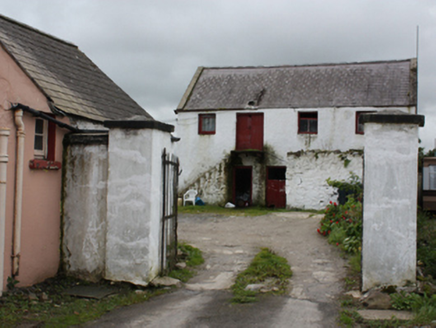Survey Data
Reg No
40802002
Rating
Regional
Categories of Special Interest
Architectural
Original Use
Outbuilding
In Use As
Outbuilding
Date
1860 - 1900
Coordinates
252894, 449213
Date Recorded
16/09/2008
Date Updated
--/--/--
Description
Detached two-storey four-bay outbuilding, built c. 1880, having external flight of steps to the east end of the front elevation (north) giving access to doorway at first floor level, and with single-storey whitewashed rubble stone shed attached to the west side of the front elevation. Modern extensions to the rear (south). Pitched natural slate roof with clayware ridge tiles, raised rendered gable copings, and cast-iron rainwater goods. Roughcast rendered and whitewashed rubble stone walls. Rendered finish to flight of external steps to front elevation. Square-headed window openings with three-over-three and one-over-two pane timber sliding sash windows. Square-headed door openings with battened timber doors at ground floor level, and double-leaf battened timber doors at first floor level. Sited to the rear of altered two-storey house to the west end of Culdaff. Site bounded to the east and west by concrete block and stone walls and to the south by a wire fence. Gateway to the north of site comprising a pair of rendered gate piers with wrought-iron flat-bar gates.
Appraisal
This simple but substantial rubble stone outbuilding, of late nineteenth-century date, retains its early form and character. Its integrity is enhanced by the retention of much of its early fabric including natural slate roof, battened timber doors and half-doors, and timber sliding sash windows. The unrefined rubble stone construction gives this building a robust and vaguely vernacular appearance. The external flight of steps giving access to the doorway at first floor level is a feature of many outbuildings in County Donegal. This building is of a type that was common in Ireland until recent years but is now becoming increasingly rare due to insensitive alteration and demolition. The scale of this particular outbuilding hints that it may have been originally associated with a commercial premises, public house etc. as opposed to the dwelling. This simple and unassuming building makes a positive contribution to the streetscape of Culdaff, and is an addition to the built heritage of the local area.





